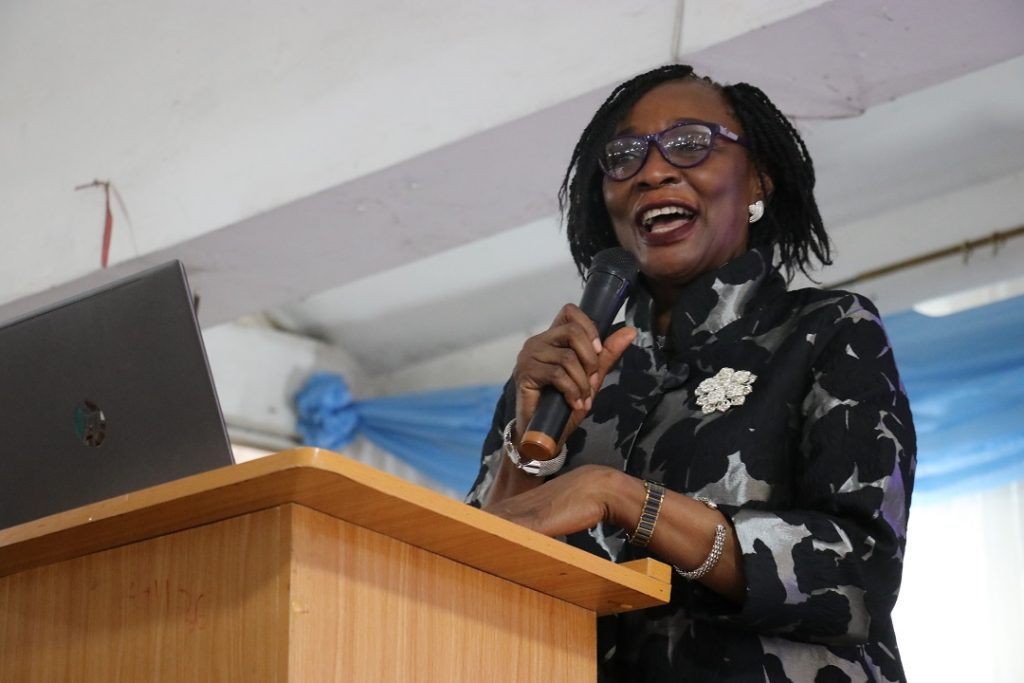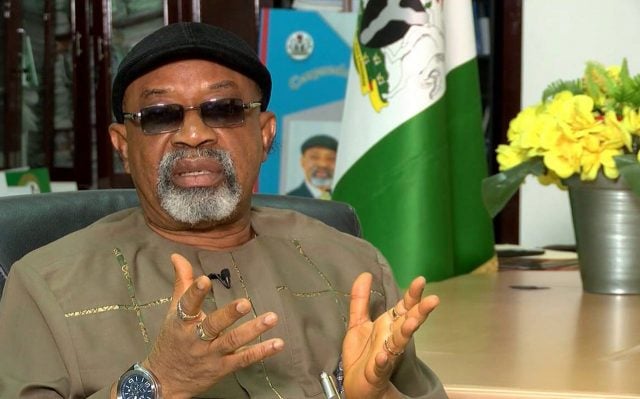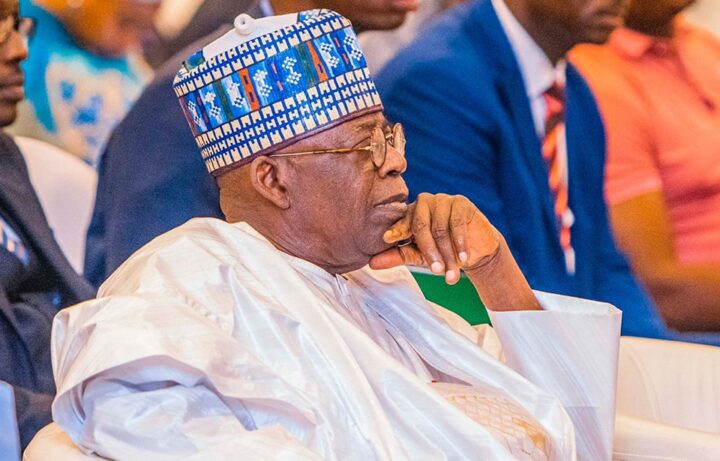On October 7, 2022, history was made. Folasade Ogunsola, a professor of medical microbiology at the University of Lagos (UNILAG), became the first-ever female vice-chancellor of the 60-year-old university.
Her journey to becoming the first woman to hold the position has been filled with stellar achievements, including playing a key role in the battle against Ebola in Nigeria in 2014.
From an eventful and interesting childhood to an adulthood in the sciences, the walk to the seat of vice-chancellor has been an interesting mix.
GROWING UP IN IBADAN — AND THE UNFORGETTABLE PANCAKE INCIDENT
Advertisement
Born in 1958 to the family of the renowned Akin Mabogunje, Nigeria’s first professor of geography and also a man of many firsts, her childhood experiences, according to an interview with Punch newspaper, included dancing, dressing up as masquerades, taking part in plays, catching tadpoles, and playing football — no surprise here, as the academic says it’s unlikely she fully outgrew her childhood tomboy nature.
“My childhood was lovely and beautiful. I grew up in the University of Ibadan. My father was a lecturer. Our house was situated on a row with nine other houses and most of the children on that stretch went to the same school, so we were always driven to and from school in a Land Rover SUV,” she said.
“We all had bicycles and we would race down the street. We formed clubs and had fun. We went on adventures by going to the ponds to get tadpoles. My childhood was like a movie. We were registered at the art theatre. So, on Saturdays, we took part in Wole Soyinka’s plays and interacted with the university students there. Honestly, I had a fun filled childhood.
Advertisement
“During festive seasons, we dressed up as masquerades and went round houses. Then the parents would give us money. There was nothing like kidnapping during our time, so we could be about ten children wearing masks, singing and dancing.
“I had a fantastic time even though we got into trouble sometimes. I remember a time when we went round houses dancing and we were given money but I did not inform my mother. In fact, our parents did not know about our dancing activities, so when she found the money and asked me where I got it from, I lied to her. My mother flogged me very well that day and seized my money. Later when I told her the truth, I got more beating because I lied at first.
“That experience made me realise that it was better to just tell the truth because we got more beating for lying. Sometimes when we spoke the truth, my father would spare us and warn us not to repeat the crime. The funny thing is that I am still friends with all those children that danced from house to house with me.”
LEAVING IBADAN FOR OSUN — AND FALLING IN LOVE
Advertisement
As she puts it, contrary to her mother’s preference, she got admission to study at the University of Ife, now Obafemi Awolowo University (OAU), Ile-Ife, Osun state. However, while one may have expected a boring, book-filled life, Ogunsola had a vibrant student life.
“We were in school for the most time we spent there and we were very studious because our time was spent reading. However, it did not stop us from going for picnics. We climbed mountains and Ife was a young person’s paradise,” she said.
“It was during our time that motorcycles were the rave, so we had the Harley Davidson boys, Kawasaki boys, and we all went out on bikes but our parents did not know.
“I am not sure people enjoyed themselves like we did. We had parties on the mountaintop. The country was safe, so we could travel to Ondo state for a party despite the bad roads and the next day, we would attend lectures.”
Advertisement
And it was also at the university that she met her husband, but it took about nine years before they got married — because, as she puts it, “we met quite early in my university days and I was also facing my medical career”.
THE UNEXPECTED INTEREST IN MICROBIOLOGY
Advertisement
Deciding to embrace microbiology was not a straightforward process — considering her moving around medicine and surgery, obstetrics and gynaecology as well as psychiatry. As she described it, microbiology was not a field she wanted to venture into at first.
“As a medical student, I hated this branch of medicine with a passion but I started getting involved with it when I met people who were into the field. One of the things that discouraged me from clinical microbiology was the fact that as a medical student, we were taught by non-medical people. Gradually, as time went on, I got to understand it and I am glad I did not venture into any other specialty,” she said.
Advertisement
A WOMAN OF FIRSTS
Before becoming UNILAG’s first female deputy vice-chancellor (development services), she was the first female provost of the institution’s college of medicine. Speaking on her achievements in the Punch interview, she expressed satisfaction with her administration during her time as provost.
Advertisement
“I decided to be myself while recognising the fact that every style had its own setbacks. I had written down a vision and I set out to do it,” she said.
“Looking back, what people often say about my tenure is that they felt I created an even playing field but I am sure my enemies would not say that.
“They say that I improved the research culture in the College of Medicine and it is something I have witnessed myself. I brought in a lot of the alumni to give back to the college.
“We also started the inter-disciplinary research which happened between the clinical schools, college of medicine, dentistry and the basic schools. We started having more people working together and it has continued after my tenure.”
THE QUALITY RESEARCH ADVOCATE WHO BATTLED EBOLA
When Nigeria was within the grip of what could have been a major Ebola outbreak in 2014, Ogunsola was involved in providing infection control expertise to steer the country of that course — and in three months, Nigeria was home free.
Speaking on tackling the Ebola pandemic in an interview in Zimbabwe in March 2015, she cited how Nigeria benefitted from a strong coordinated response and committed healthcare expertise.
“What struck me about the outbreak in Nigeria was that it was really an outbreak of fear. More people died from the fear — both in the community and among healthcare workers. Our strategy was to rapidly upscale what we had on ground — a strategy we had used for polio and guinea worm eradication, which was using the incident manager structure,” she said.
“It required that we had a strong central coordinating centre and that we engaged the community early, used media effectively, and sent out short easily-understood messages.
“The other thing was that treatment only occurred in treatment centres — not in any of the major hospitals. Everybody had to refer to the treatment centre, so that everything was concentrated in the hands of experts.”
‘PREPAREDNESS BUILDS ON WORKING SYSTEMS’
An advocate for quality research as part of efforts to build sustainable health systems to prepare Nigeria for the next pandemic, Ogunsola wants a Nigeria where the response to public health emergencies is proactive rather than reactive.
“Fundamentally, preparedness builds on a system that’s working – and that system is broken,” she said while speaking at a policy dialogue session organised by The Conversation Africa.
“So if we’re really going to prepare for the next pandemic, or we’re going to get the trust, we have to build the systems and make sure that they’re strong. We need good health systems, we need good educational systems.”
Her articles about Nigeria’s response to public health emergencies reflect hope for a country saddled with challenges. However, as she wrote on the Ebola pandemic, saying “Nigeria proved the pundits wrong,” becoming first female vice-chancellor of a 60-year-old university is a major statement on blazing the trail on gender inclusion.
For a country that currently has more than 200 universities, but with only 11 female vice-chancellors as of October 2021, Ogunsola has turned a refreshing page in Nigeria’s history that will be remembered for a long time.






